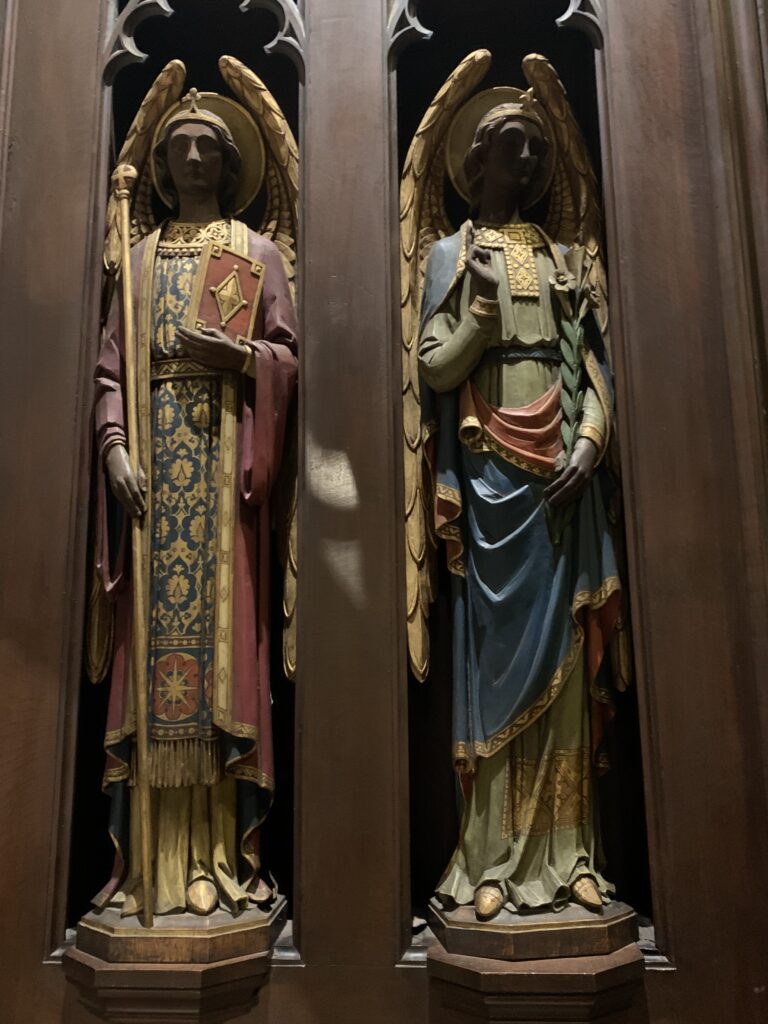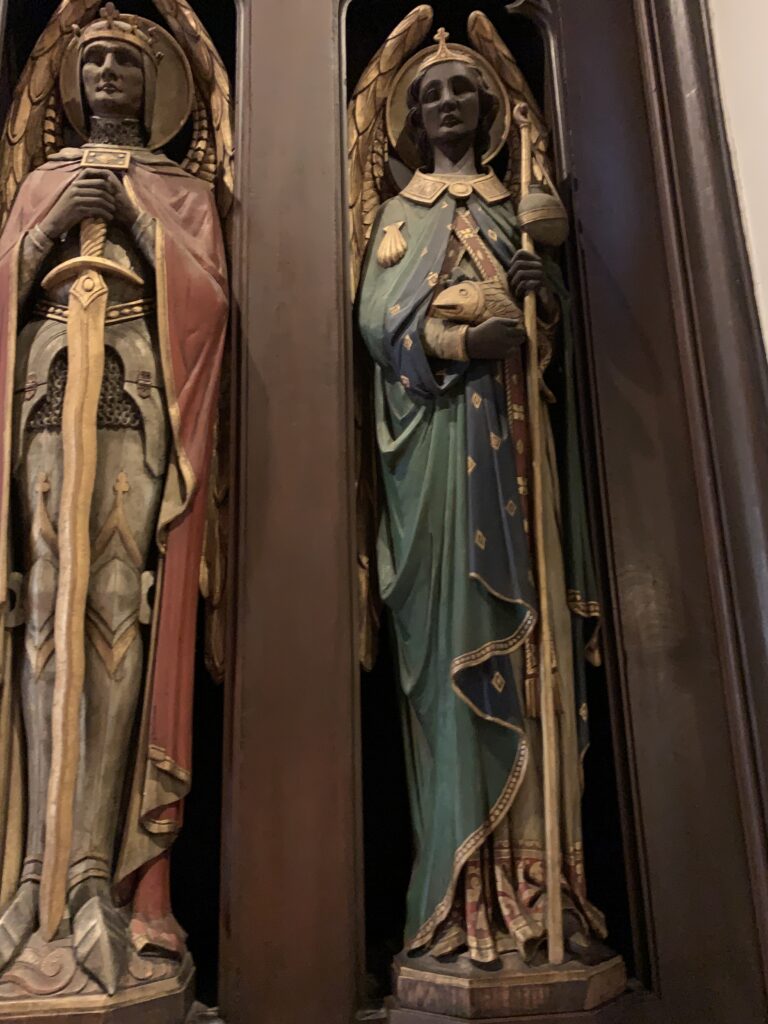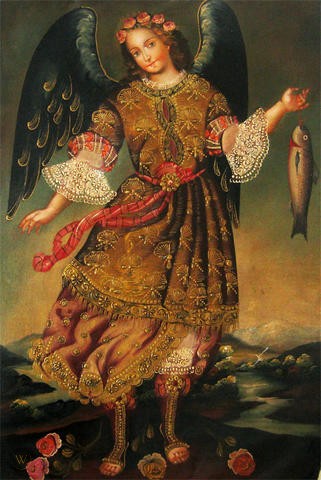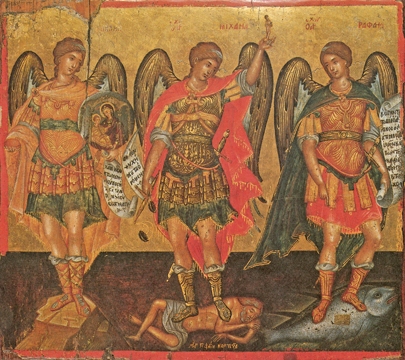The Archangel Raphael is said to be the angel always ready to blow the trumpet to announce the General Resurrection and the End of Time, according to Islam. Christians, on the other hand, expect the Archangel Gabriel to be the one who will blow the trumpet on the Last Day to announce the General Resurrection and Judgement.
For the Lord himself will come down from heaven, with a loud command, with the voice of the archangel and with the trumpet call of God, and the dead in Christ will rise first.
(1 Thess. 4:16)
A statue of Gabriel, often depicted with the lily which is associated with the Mother of God (because he brought the Good News of the Annunciation to the Blessed Virgin), is frequently found atop the roof at the east end of churches already blowing the trumpet. It is always Gabriel’s job to announce; he is the “announcer” of God.
We are told in the Old Testament to blow a trumpet to celebrate the New Year (Leviticus 23:24) or to announce a fast (Joel 2:15). Trumpets announce the coming of God as king and call the people to get ready to greet him. In the New Testament, trumpets announce the arrival of God’s judgement and call the people to turn their lives around (“repent”) in order to face the coming judgement. That is why Gabriel blows the trumpet atop a church: to announce the End that comes during the celebration of the Eucharist on the altar below the statue’s feet.
The most famous trumpets in the Bible are the seven trumpets blown in the Book of Revelation (Rev. 8-11). Angels blow the first six trumpets to call sinners on Earth to repentance. Each trumpet blast brings a plague, each one more disastrous than the one before it. The trumpet is used to build anticipation and tells the reader that an alert, announcement, or warning is about to take place. The seventh trumpet does not bring a plague with it. Instead, an angel blows the seventh trumpet to announce the glory of God and the coming of his kingdom.
How did Raphael get associated with the trumpet in Islam? Islamic folklore says that Raphael was the first of the archangels to be created and that he visited Mohammed even before the archangel Gabriel came to reveal the Qur’an. The Islamic folktales also say that Raphael is a master of music, who sings praises to God in a thousand different languages. It is probably this association with music that results in Raphael being given the honor of blowing the trumpet.
We never read explicitly in the New Testament that Gabriel is the archangel that will blow the trumpet on Judgement Day. I think we have come to expect him to do this precisely because he is God’s “announcer,” who announced the meaning of Daniel’s visions to the prophet (Daniel 8-9) and the birth of John the Baptist to his father Zachary as well as the birth of Christ to the Mother of God. So we expect him to announce the End of Time and the General Resurrection as well.
But the association of Gabriel with the trumpet can only be dated with certainty to the 1300s: the earliest known identification of Gabriel as the trumpeter comes in John Wycliffe’s 1382 tract, De Ecclesiæ Dominio. In the year 1455, there is an illustration in an Armenian manuscript showing Gabriel sounding his trumpet as the dead climb out of their graves. Two centuries later, Gabriel is identified as the trumpeter, in John Milton‘s Paradise Lost (1667).




